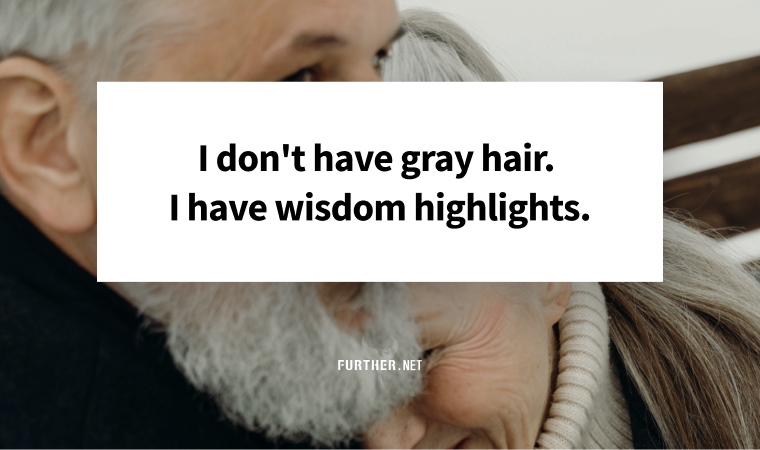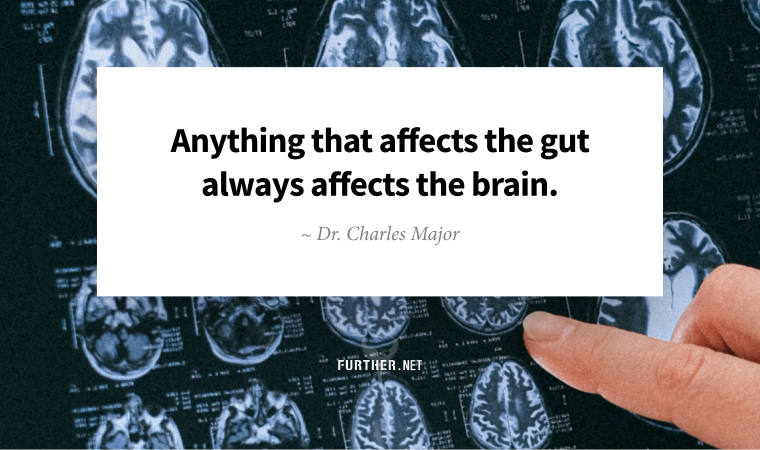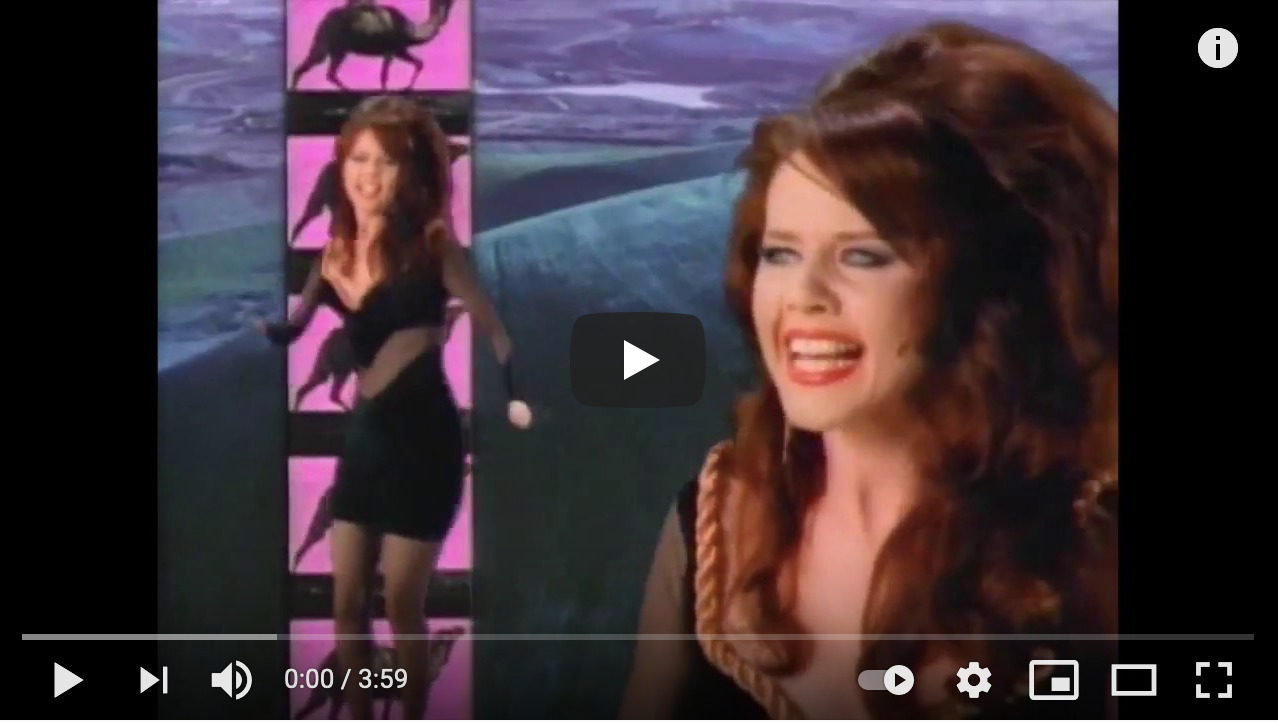
I’ll be 54 end of next month. I’m not sure I ever tried to imagine what age 54 would be like when I was younger, but I can tell you one thing … I certainly don’t feel old.
And yet, we seem to be subject to some kind of weird social construct when we’re over 50. It’s as if we’re immediately deemed to become non-worthy by everyone else:
All over the nation, in just about every business, from tech to media to manufacturing, Boomers and Gen Xers are being squeezed out of the picture. Corporations are culling them from their payrolls, Hollywood is writing them off the screen, advertising is completely ignoring (or humiliating) them.
Doesn’t seem right. In fact, when you factor in that we’re the ones with all the money, it’s downright crazy.
Actually, it’s worse than crazy. It’s stupid. Just do the math. In 2021, with Xers now entering their fifties and Boomers living longer than ever, older people make up 30 percent of the workforce. Folks over 50 — and there are 113 million of them in the U.S. — own 70 percent of the wealth, purchasing an estimated $5.6 trillion a year in goods and services. Together, Boomers and Xers buy more cars, spend more on luxury travel, and own more electronics and homes than any other age group, accounting for a whopping 40 to 50 percent of all consumer spending.
The biggest mistake brands and media companies make with the 50+ set is dumping them into one big undifferentiated bucket. Imagine speaking to an 80-year-old member of the Silent Generation in need of in-home care like they were a 65-year-old Baby Boomer beginning an “encore career” instead of retiring.
Many people in their 50s are engaged in healthy aging, eating well, and competing in extreme sports. Have you seen Lenny Kravitz, Jennifer Lopez, and Brad Pitt lately? They’re in incredible shape for anyone, not just for 50-somethings.
Compare that with Wilfred Brimley, who was only 49 when he starred as a geriatric in 1985’s Cocoon. The goalposts have moved and will continue to with advances in longevity science. And despite the obsession with youth that afflicts our culture, older people are now actively celebrating getting older.
Take 56-year-old Paulina Porizkova (yes, that Paulina). She’s developed a huge following on Instagram over the past year by posting un-retouched photos of herself without makeup, and sometimes without clothing. Paulina went from feeling invisible as a 50-something woman to relishing who she is and what she looks like. And it’s resonated strongly with people who understand that getting older is to be celebrated, not hidden away.
Call it gray pride. And anyone who ignores the massive gray market does so to their own detriment. But whatever mainstream media does, take a lesson from Paulina and realize that we can all create media and attract audiences now.
If you’re between the ages of 45 and 65, you have a unique opportunity to succeed in the growing gray market. That’s because if you engage well with a group that is being spoken down to (or not spoken to at all), they’ll look to you for product and services recommendations and offers on an ongoing basis. As a card-carrying member of the middle-aged set, you’ve got this.
While older people lead the world in buying certain age-related products and services, they purchase most everything else as well. If you get the audience equation right, the rest becomes a match made in heaven for you and them.
As you may have guessed, this is why Further is my purpose project for the long term. I’m not just getting older, I’m getting better. And so are you.
In With the Olds! Why Aging is No Longer a Dirty Word
Keep going-
P.S. New to Further? Join us here.
Step To It
You may already know that the “10,000-step rule” is arbitrary. While hitting 10,000 a day is certainly not a bad thing, if you’re pressed for time here’s some science on how may steps you should aim for.
This Is Actually How Many Steps You Need In A Day For Longevity (It’s Not 10,000) (MBG)
The Fundamentals
Eat well, early, and less. Move. Get regular checkups. Quit bad habits. Sleep. You know the fundamentals, but it helps to be reminded. Get more detail by hitting the link.
Exercise: Don’t Forget
Another thing we know is that exercise is good for your brain as well as your physique, but we weren’t sure how it worked. An intriguing new study shows how exercise may bolster brain health by the release of a hormone produced by muscles during exercise that enhances the health and function of neurons.
How Exercise May Help Keep Our Memory Sharp (New York Times)
No Purpose, No Point
The great resignation shows no sign of slowing down. Interestingly, this doesn’t seem to be driven by higher pay or better conditions or even the desire to start a business. The pandemic has caused many to realize that their careers lack purpose, and prompts the question — what’s the point?
The ‘Great Resignation’ is Likely to Continue, as 55% of Americans Anticipate Looking for a New Job (CNBC)
Go With Your Gut for Better Mental Health

By Trudi Roth
Remember the beginning of the pandemic when there was a global toilet paper shortage?
Turns out that the gut reaction of consumers worldwide made sense not only from a scarcity perspective, but also from a scientific one. As we faced an unprecedented stressor, our bodies responded with both physical and mental upset. This is because the “gut-brain axis” plays a significant role in our well-being.
From this connection, researchers have been able to link gut issues (like dysbiosis — when good bacteria is low) and inflammation in the gut to mental health disorders.
Your “gut microbiome” — the ecosystem of bacteria that lives in your intestinal tract — is shown to profoundly impact your health. And it can be the belly of the beast for mood disorders.
The Mind-Belly Connection
If you’ve ever experienced butterflies in your stomach before doing something nerve-wracking, you know there’s a genuine connection between your psychological state and digestive physiology. That’s because you have a “second brain” in your gastrointestinal tract: millions of nerve cells that send signals to your central nervous system, creating mood changes along with physical symptoms like stomach pain or upset.
This is why research shows around 60% of patients with anxiety and depression also have gastric issues like irritable bowel syndrome (IBS).
Also, your gut bacteria produce much of your body’s essential neurotransmitters for mental health, including serotonin, dopamine, GABA, and norepinephrine. While more research is needed to understand better how the connection between mind and gut microbiome works, it’s clear that they’re interconnected.
Ditto on your gut-based immune system — again, how it works needs further study, but the connection between inflammation and degeneration and mental health challenges is apparent and compelling.
The Middle Road
Improving your gut health is simple; start by checking your diet. After all, bacteria and chemicals in the gut microbiome help moderate the vagus nerve, the primary connection between the brain and intestinal tract.
As Dr. Emeran Mayer, author of The Mind-Gut Connection, explains:
Several molecules generated by gut microbes from the food we eat can reach the brain via the circulation. They can also “activate receptors on vagal nerve endings, which in turn generate vagal signals to the brain.
As it is with pretty much everything else health-related, the best diet is primarily plant-based, full of antioxidant-rich fruits and vegetables, plus fermented foods for probiotics. (Finally, my kombucha obsession is validated!) And keep your intake of processed food, refined sugar, and red meat to a minimum.
Additionally, mindfulness practices like meditation, yoga, and breathwork can help reduce gastrointestinal distress and improve mood.
Bottom line: if you want to live a happier, healthier existence, go with your gut.
The Gut-Brain Axis: How Your Gut Affects Your Mental Health (c|net)
Understanding the Gut-Brain Connection (Psychology Today)
further: flashback
 The B-52’s – Roam
The B-52’s – RoamCosmic Thing, 1989
While the lingering pandemic may be stifling your ability to Roam, you can always let the B-52’s cheer you up in the meantime. Such an infectiously upbeat tune. (YouTube)
further: sharing

Further subscribers earn cool gear simply by referring friends to join the newsletter. Get your own free weekly dose of health, wealth, travel, and happiness advice here.
Thank you for sharing Further!
